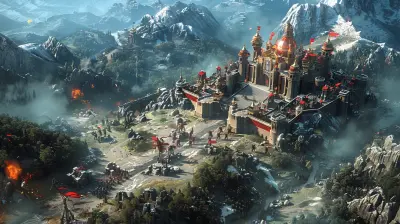Advanced Tactics for Winning Multiplayer Strategy Battles
5 November 2025
Who doesn’t love the thrill of multiplayer strategy games? There's something exhilarating about outwitting live opponents, crafting cunning plans, and watching them unfold in real-time. Whether you're a seasoned strategist or a newcomer itching for victory, sharpening your tactics can elevate your game. Let's dive into some advanced tips to help you dominate your next multiplayer showdown. Trust me, once you master these, your opponents won’t know what hit them.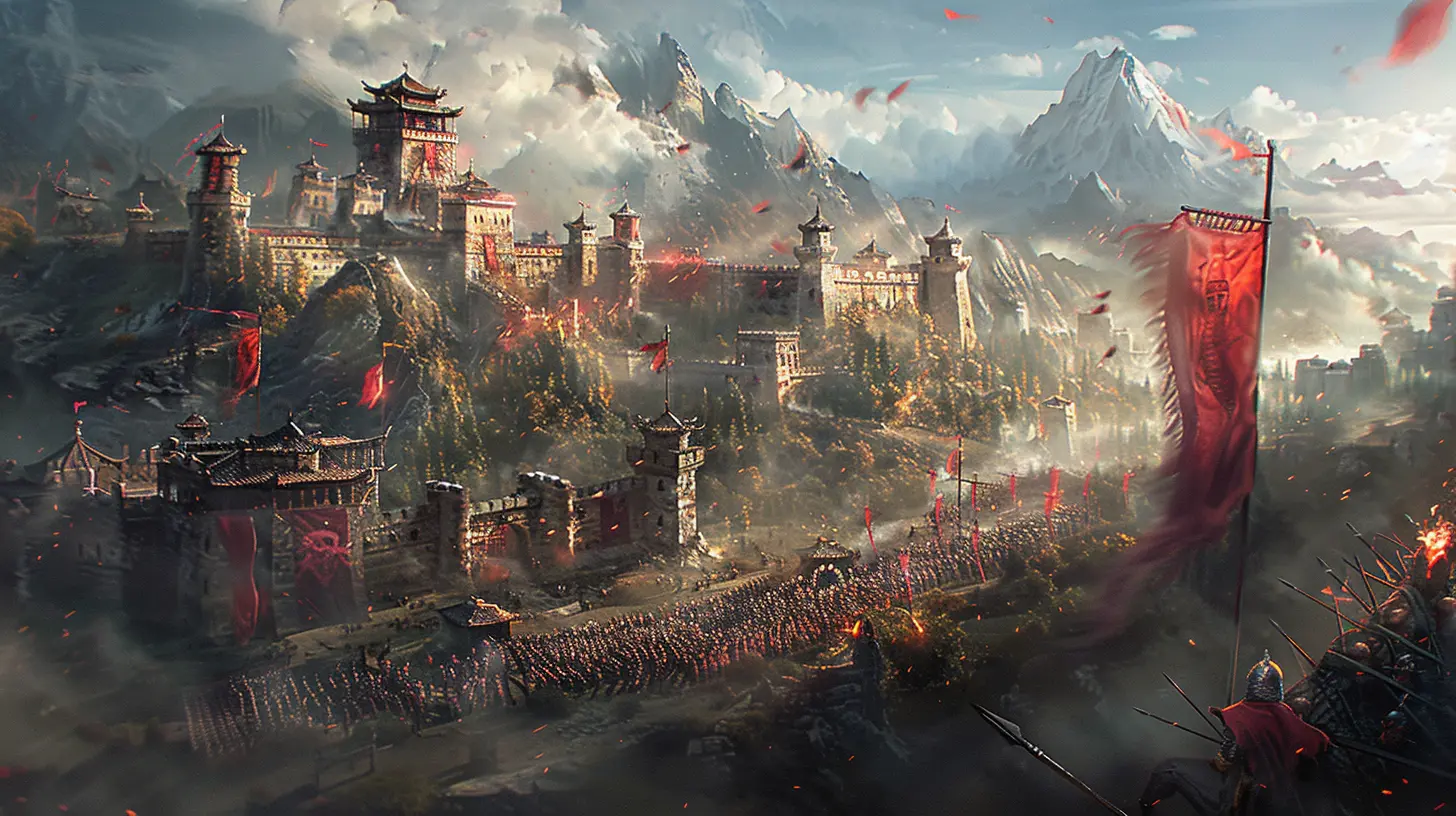
Understand the Game Mechanics Inside Out
First things first—knowledge is power. Every strategy game has its own unique mechanics, rules, and quirks. Whether it’s resource management, unit types, terrain advantages, or building progression, knowing the nitty-gritty details is a game-changer.Take some time to read guides, watch high-level gameplay videos, or even experiment on your own. Pay close attention to how each game component interacts with others. For example, in games like Starcraft II, understanding the rock-paper-scissors dynamic of units (e.g., tanks vs. infantry, infantry vs. aircraft) can give you a massive edge. Think of it as mastering the chessboard before making your first move!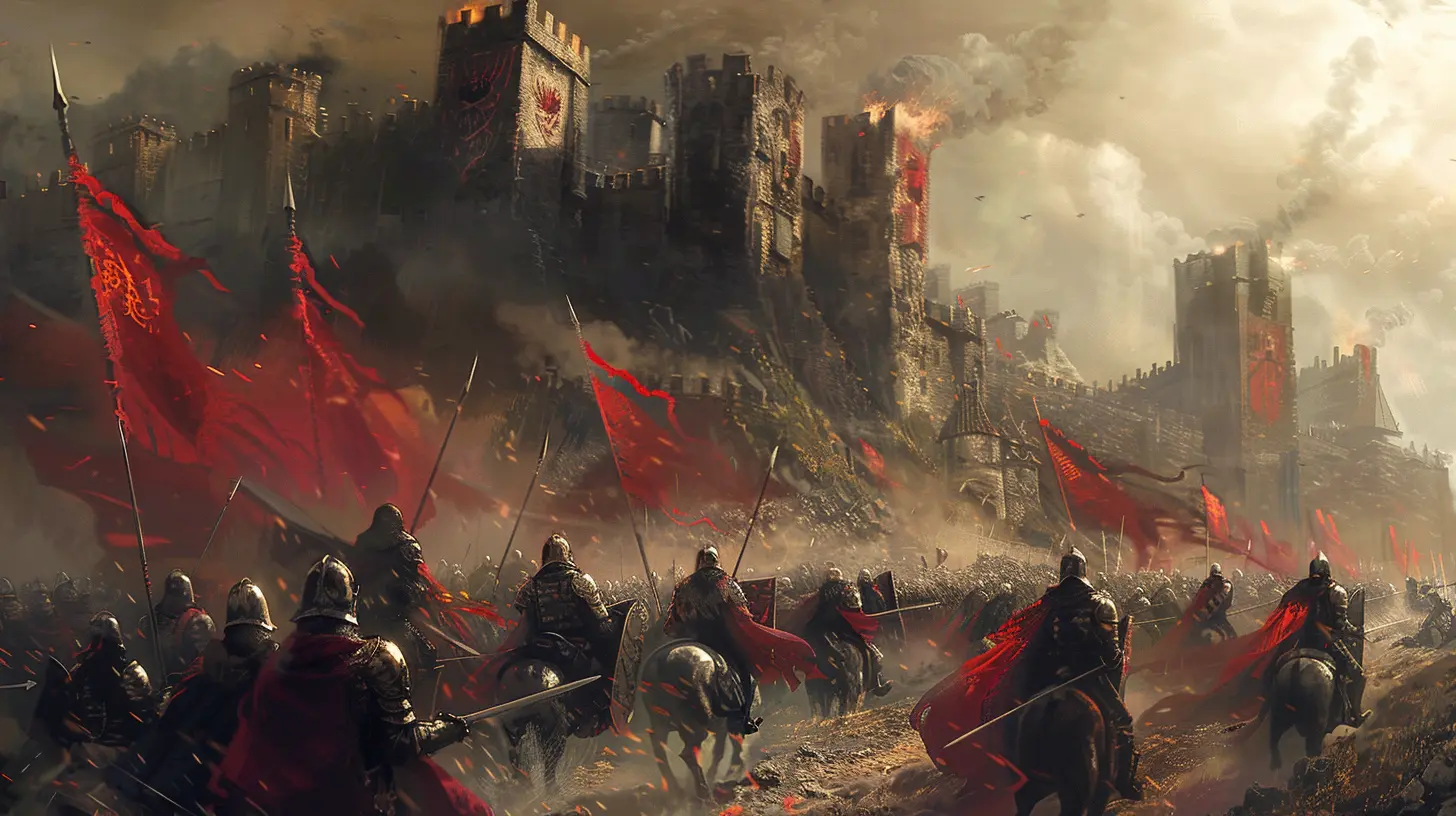
Master the Art of Adaptability
You can come into battle with the perfect plan. But what happens when it all goes sideways? (Spoiler: It will.) That’s where adaptability separates the pros from the amateurs.Let’s say your opponent suddenly shifts tactics mid-game—such as sneaking in an ambush or teching up faster than anticipated. If you’re too rigid in your strategy, you’ll crumble like a house of cards. Instead, observe what they're doing and adjust on the fly. Build counters, reposition forces, and prioritize objectives based on the changing dynamics.
Multiplayer strategy is like a game of poker mixed with chess—not only are you planning moves ahead, but you’re also playing against people. People make mistakes. They also have habits and patterns you can exploit. Keep your eyes peeled for those tells.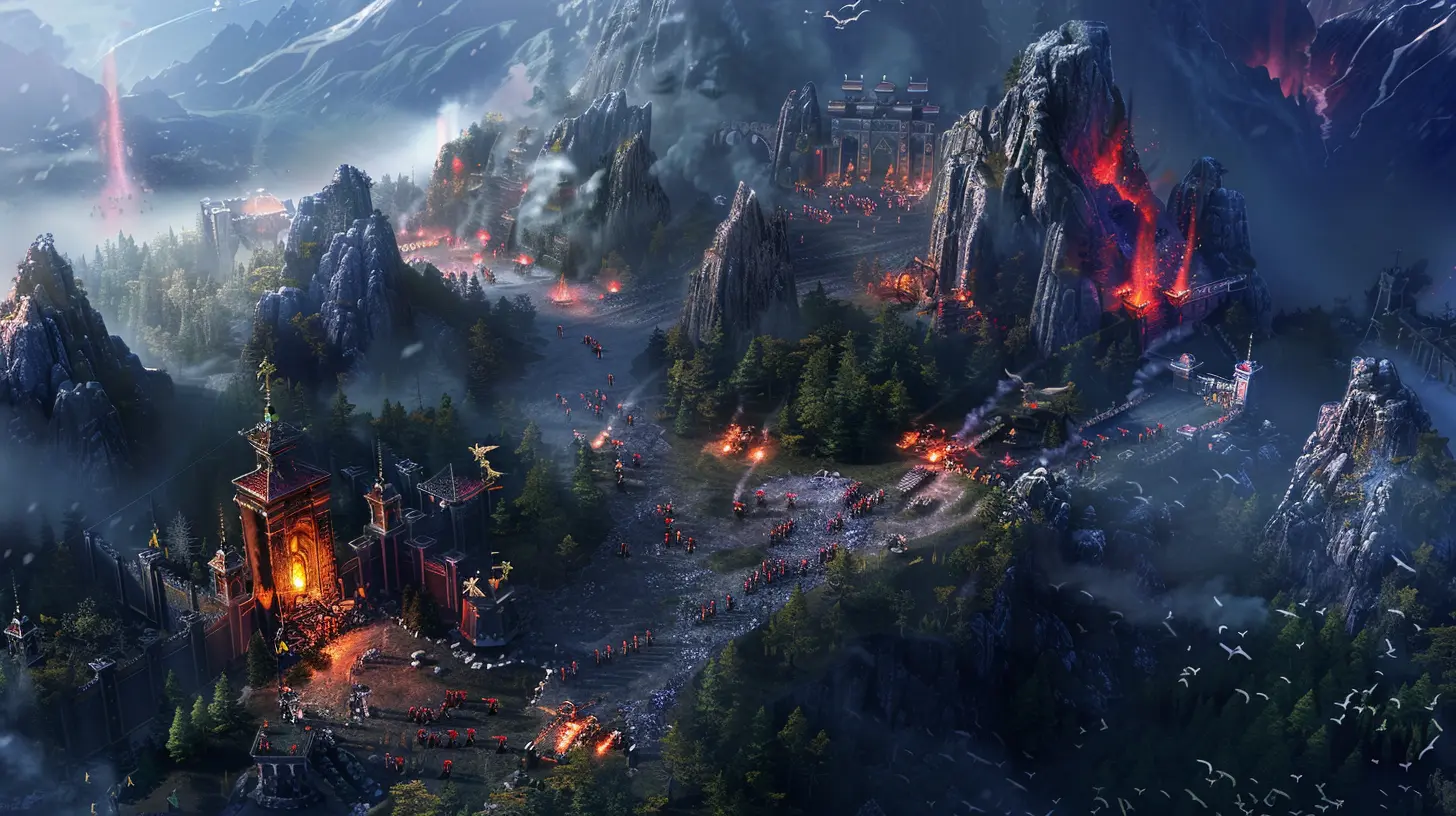
Manage Resources Like a Pro
In almost every strategy game, resources are life. Gold, wood, vespene gas, energy—it doesn’t matter what they’re called. If you’re not managing them efficiently, you’re toast.Here’s the deal: balancing offense and economy is critical. Spend too much on building an army, and you’ll run dry when it’s time to expand or reinforce. Invest too much in your economy, and you’ll be overrun by aggressive foes who sense your weakness. Walk the tightrope wisely.
Pro tip: Always scout your opponents early and often. If they’re going heavy on economy, don’t let them breathe—pressure them into spending their resources defensively. Conversely, if they’re rushing, lean into fortifications or counter-rush strategies.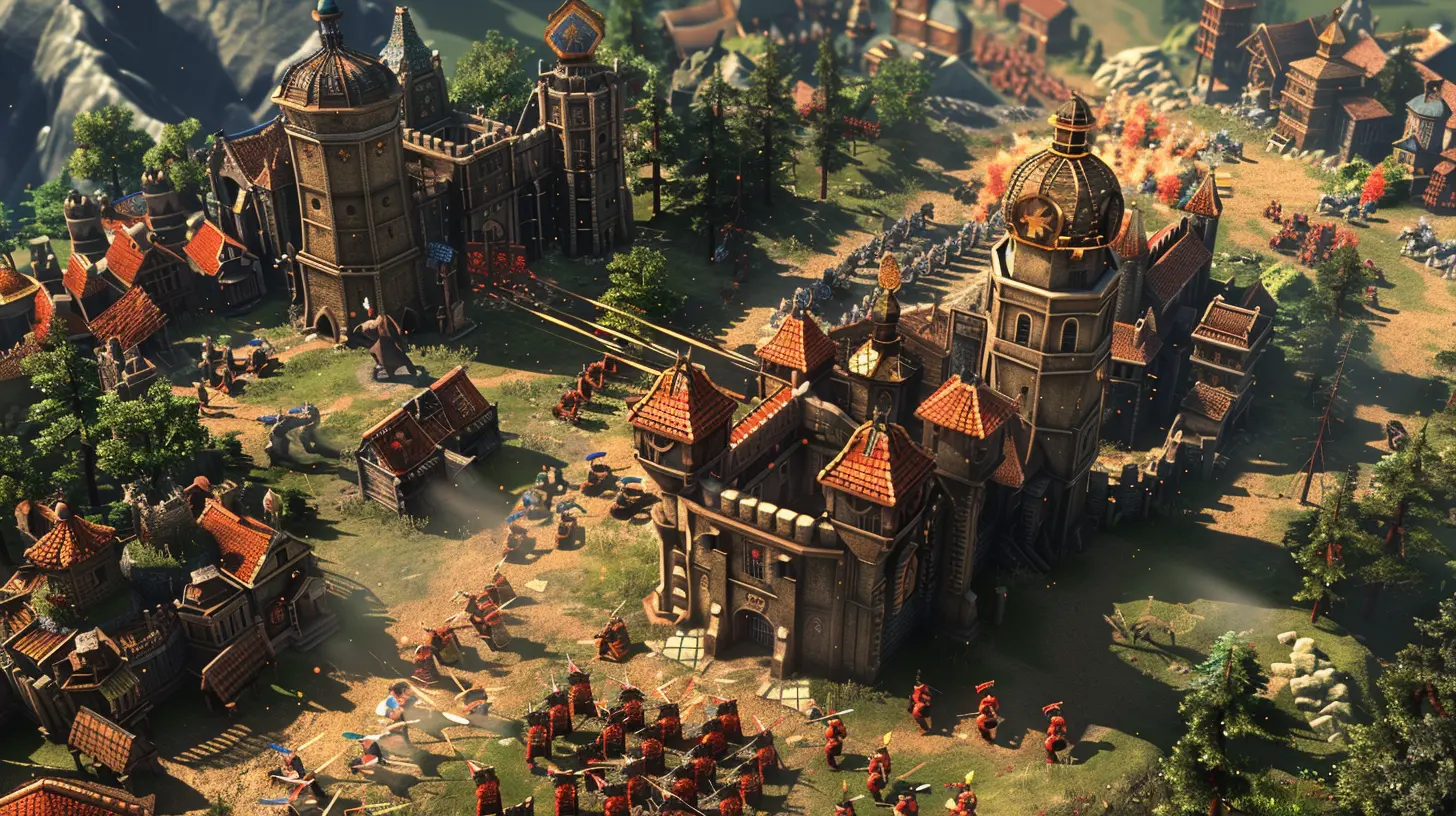
Scouting: Your Greatest Weapon
Never, ever go into a battle blind. Scouting is hands-down one of the most underrated tactics in multiplayer strategy games. Knowledge of your opponent’s movements, unit composition, and strategies can make or break your game.Think of scouting as putting on glasses when you’re practically blind. Without it, you’re stuck guessing, which often leads to wasted resources or poorly timed attacks.
Use cheap, expendable units—or units with stealth abilities—to gather intel. For example, in a game like Age of Empires II, sending a villager or a scout cavalry early on can reveal valuable information about your opponent’s plans. Based on what you see, you can tailor your strategy for maximum effectiveness.
Timing Is Everything
Ever heard the saying, “Timing is the secret of life?” It’s doubly true in multiplayer battles. Knowing when to strike, retreat, or expand can be the difference between victory and defeat.Picture this: you’ve just built a massive army, but your opponent has done the same. Do you attack head-on? Maybe—but what if you waited until they were busy expanding their base? Or until their forces were out of position chasing another target? Perfect timing can lead to game-winning outcomes, often without taking unnecessary risks.
Pay attention to power spikes, too. These are moments in the game where you hit a significant advantage—like unlocking a strong unit type or tech. Use these windows to pressure your opponent or secure key objectives.
Divide and Conquer
Ah, the age-old strategy of dividing and conquering. While it might sound like something out of a history textbook, it’s incredibly effective in multiplayer games.The goal here is simple: split your opponent’s focus. Force them to juggle multiple threats at once by launching attacks or distractions on multiple fronts. For instance, send a small force to harass their resource gatherers while your main army strikes their defenses. Most players, even skilled ones, struggle under this kind of pressure.
It’s like juggling flaming torches—easy to mess up with disastrous results. Keep your opponent on their toes, and you’ll find opportunities to exploit their mistakes.
Build Strong Team Communication (For Team-Based Games)
If you’re playing multiplayer with friends or teammates, don’t underestimate the power of solid communication. A well-coordinated team with average skill levels can obliterate a disjointed team of high-level players.Use voice chat, pings, or in-game commands to stay on the same page. Assign roles—one person can focus on economy, another on military, and someone on scouting. When everyone’s contributing to the bigger picture, it’s smooth sailing.
Miscommunication, on the other hand, is a death sentence. Ever had a teammate charge into battle while you’re still setting up defenses? Yeah... not fun. Avoid those scenarios by keeping everyone in the loop.
Map Control is King
Here’s another must-know tactic: control the map like your life depends on it (because it does). Whoever dominates more of the map has access to better resources, strategic positions, and vision over their opponent's movements.Think of the map as a giant chessboard. If you only stick to one corner, you’ve already surrendered control of the majority of the game. Expand early, secure chokepoints, and deny your opponent access to key areas. Is there a critical gold mine or relic in their sights? Beat them to it, even if it means taking risks.
Psychological Warfare
This one’s for the cunning players out there. Multiplayer battles aren’t just about numbers and mechanics—they’re a mental game, too. Getting inside your opponent’s head can lead them to make rash decisions or second-guess their strategy.How do you do this? Well, bait them into traps. Make it look like your defenses are weaker than they really are, and then crush their attack. Or feint an assault, pulling their forces to one area while your real attack targets something vital.
Psychological warfare is all about planting seeds of doubt and exploiting emotional responses. Done right, it’s a game-winning tool.
Learn from Every Defeat
Finally, let’s talk about losing. Nobody likes it, but the truth is, every loss is an opportunity to improve. Instead of getting salty or frustrated, take a step back and analyze what went wrong.Did you overcommit too early? Fail to scout properly? Neglect your economy? Pinpointing your mistakes is the fastest way to level up your game. Save replays, watch them back, and figure out how to counter what worked against you.
Remember, even the best players lose. The difference is they treat every defeat as a stepping stone to greatness.
Final Thoughts
So, there you have it—a collection of advanced tactics to help you crush your opponents in multiplayer strategy battles. Whether you're expanding your map control, mastering timing, or diving into psychological warfare, these tips will give you the edge you need.The beauty of strategy games lies in their endless depth. There’s always something new to learn, and every match feels fresh and exciting. So, get out there, put these tactics into practice, and start racking up those wins. And hey, don’t forget to have fun along the way—it’s just a game, after all. Or is it?
all images in this post were generated using AI tools
Category:
Strategy GamesAuthor:

Audrey McGhee
Discussion
rate this article
1 comments
Xylo McKeehan
Embrace creativity and teamwork in your battles! Every loss is a lesson, and every victory builds your skills. Let these advanced tactics inspire you to strategize, adapt, and conquer your multiplayer challenges! Happy gaming!
November 6, 2025 at 6:04 PM

Audrey McGhee
Thank you! Embracing creativity and teamwork truly enhances our strategy, turning every battle into a learning experience. Let's keep pushing our limits and evolving our gameplay! Happy gaming!

